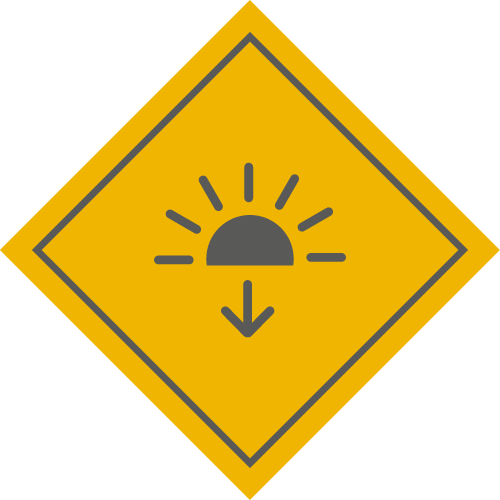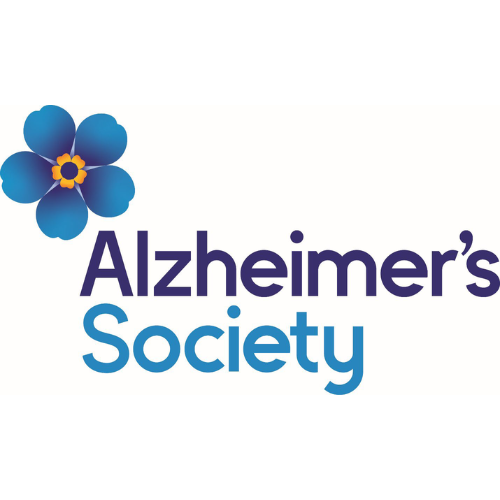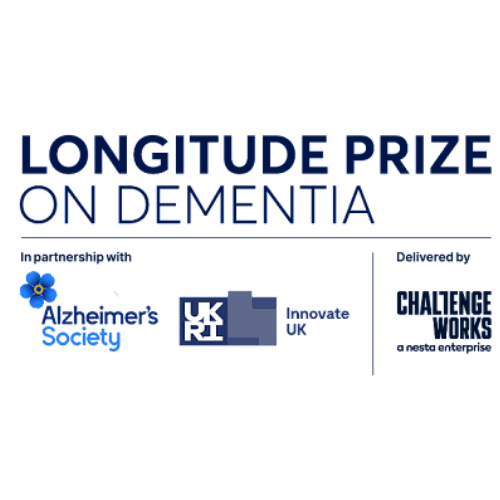Sundowning refers to the increased confusion, agitation, and behavioral changes that often occur in individuals with dementia during late afternoon and early evening hours. This unsettling phenomenon can be distressing for both individuals with the condition and their caregivers. In this blog, we will explore sundowning, answer some of the most frequently asked questions about sundowning and its impact, and cover how Memory Lane Games can be used by caregivers as a valuable tool to ease the symptoms.
Sundowning is not a standalone medical diagnosis or disease but rather a cluster of symptoms that become more pronounced in the late afternoon and early evening. It primarily affects individuals with cognitive impairment, most commonly those diagnosed with dementia. The exact cause of sundowning remains unclear, and everyone who experiences it has their own unique set of symptoms.
Whilst not an independent medical condition it is associated with a specific set of symptoms which occur or intensify later in the day. Each person can present differently.
The frequency, range and severity of symptoms may vary from person to person, and not everyone with dementia will experience the symptoms of sundowning.
Sundowning is not exclusive to specific stages of dementia, and there can be significant variations in its presentation among individuals but below is a general overview of how sundowning may manifest in different stages of dementia:
Early-Stage Dementia:
● Some may experience mild agitation, restlessness, or confusion which is more pronounced in the evening.
● Caregivers may notice subtle changes in behavior or mood such as wandering and requiring more direction and reassurance and which worsens later in their day.
Moderate to Later Stages of Dementia:
● Sundowning can become more noticeable and frequent.
● Individuals may experience increased agitation, confusion, restlessness, and anxiety.
● Delusions, hallucinations, and mood swings may become more pronounced during later stages.
● Symptoms may be severe, with individuals exhibiting heightened confusion, anxiety, aggression, and disorientation during the late afternoon and evening.
Sundowning symptoms can vary from person to person but here are some of the most common symptoms:
● Agitation and Anxiety: Individuals may become anxious, restless, or easily agitated about things that don’t bother them at other times during the day. This heightened state of agitation can lead to various challenging behaviors, making it difficult for both the affected individuals and their caregivers.
● Confusion: There may be increased confusion and disorientation, with individuals not recognizing familiar people, objects, routines, or places, such as the location of their bedroom or how to brush their teeth. This can be distressing for the affected person and lead to fear and anxiety.
● Hallucinations: Some people may experience hallucinations, seeing or hearing things that are not there. These disturbances can present as benign or bothersome, depending on the individual and can intensify feelings of fear and anxiety. This can also be pretty frightening for caregivers too.
● Delusional thoughts and paranoia: False beliefs or misconceptions may arise, leading to irrational thoughts and behaviors. These could present as an incorrect narrative or a sudden fear for their own safety.
● Wandering: Restlessness and confusion may lead to wandering, which can be dangerous if the person becomes lost or enters an unsafe space. Perhaps one of the most commonly reported symptoms of sundowning is the frequently expressed desire to ‘go home’. They may be acting out childhood memories and seem confused about where they are now, believing that their parents are still alive and that they need to go home to them for example.
● Mood Swings: Sudden, sometimes severe mood swings, from anger to sadness and even crying, are common during sundowning episodes and can be a sign of stress and anxiety caused by other symptoms or just a complete inability for the individual to self-regulate their emotions.
● Disrupted sleep: Sleep patterns are often disrupted in someone with dementia but especially so when sundowning. The person may have difficulty falling asleep but also may experience nightmares and/or wakefulness with accompanying confusion or delusions which add to the inability to settle and rest.
Disruption in circadian rhythms: One theory is that the body's internal clock, known as the circadian rhythm, is disrupted in people with dementia. Changes in light, temperature, and other environmental cues during evening hours may confuse the internal clock, leading to behavioral changes and symptoms of sundowning.
Fatigue and end-of-day stress: As the day progresses, mental and physical fatigue can set in for individuals with dementia. This exhaustion can increase their normal dementia symptoms leading to decreased orientation and emotional control.
Sensory overload: Changes in lighting, noise levels and activity can be overwhelming particularly to someone who’s senses have already been reduced by dementia.
Physical health issues: Pain, discomfort, and other physical health problems may become more pronounced in the evening, exacerbating sundowning symptoms. These can be acute, such as itchiness, or chronic, such as an arthritis flare-up.
Medication effects: Some medications may have side effects that worsen during the late afternoon and early evening, contributing to symptoms of sundowning.
Here, we'll delve into some of the most effective non-pharmacological strategies to help the person with dementia and explore how Memory Lane Games may also help manage the symptoms of sundowning.
Maintain a Routine: Consistent daily routines can help regulate the circadian rhythm and reduce confusion. This includes regular mealtimes, activity schedules and bedtime routines.
Sundowning symptoms can escalate when a person with dementia does not get adequate sleep and so routine and sleep hygiene are very important.
The person may need a different routine to what they used to have before their dementia onset.
Review the comfort and suitability of their room and bed to ensure that it is quiet and that they feel safe and comfortable enough to rest.
Calming Activities: Reducing stimulating activities before bed and engaging them in calming activities such as listening to soothing music, reading, or playing a digital therapeutic like Memory Lane Games can be helpful in helping them to wind down ready for sleep.
Select a game on Memory Lane Games that enables them to remember happy times, maybe about their pets or the place they lived when they were small to leave them calm and happy.
Minimize unnecessary noise and visitors later in the day too.
Adequate Light: Ensure that people are exposed to daylight during the day and that the indoor environment is well-lit in the afternoon and evening to reduce confusion related to changes in light levels.
Any changes to lighting, later in the day should be made gradually.
It can also be helpful to use night lights to avoid confusion during the night which might be caused by darkness.
People with dementia can experience sensory loss and difficulties with spatial awareness so set up their environment to meet their needs.
Limit Stimulants: If possible, limit caffeine and sugar in the late afternoon and evening as they can exacerbate symptoms of agitation.
Avoid alcohol completely instead offering zero or low alcohol alternatives if necessary.
Hydrate: Dehydration can exacerbate dementia and sundowning symptoms however it can be challenging to get someone with dementia to drink enough fluid of their own accord.
Try incorporating hydrating foods such as soups, jelly, melon or cucumber
Do not rush someone whilst drinking and use cups that are easy to pick up and not heavy.
When trying to get someone to eat or drink it can also be useful to incorporate this with an engaging and fun activity such as playing Memory Lane Games. An approach of ‘one sip/bite, one question’ can distract and reduce anxiety and pressure around the need to eat and drink.
Try playing games on favorite foods to raise an appetite!
Create a Safe Environment: Ensure that the living space is secure and safe to prevent accidents.
Think about getting additional help during sundowning hours to anticipate the needs of the individual.
Keep external doors locked and minimize clutter.
There are various technologies, such as motion sensors and pressure mats that can be used to anticipate or alert wandering and minimize associated dangers.
Being safe and feeling safe: A living environment free from trip hazards and clutter seems obvious, however it is important to consider this from the point of view of someone who may have reduced senses or spatial awareness and potential difficulty remembering where they are. Aim to provide an area where they can freely move around without concern. An important element of calming sundowning is also providing them with a feeling of safety too. It may be challenging to overcome their seemingly irrational fears or confusion however it may be possible to establish triggers which could be avoided in future. Be curious, question and talk to them about how you can make them feel happy and safe and be prepared to go along with them into their memories.
Ask Questions: It is also helpful to determine if the person is wandering aimlessly (boredom, looking for direction) or wandering with purpose (attempting to locate something or go somewhere) in order to assign the best tool to the behavior. Providing that their purpose is not potentially dangerous, caregivers often find it is more helpful to go along with someone on their ‘journey’ and this can result in a calmer, happier person who feels they have fulfilled what they set out to do.
Validating Communication: Maintain clear and simple communication with the person experiencing sundowning. Use reassuring language and validate their feelings. Try not to correct or disagree with someone with dementia as it is not possible to reason with someone in a state of sundowning and this can increase anxiety and distress for you both. Repeated and monotonous questioning can be eased with distraction or by providing the answer in written form so that they can see it.
Redirection: Attempt to change the subject from their worry or fear to something they enjoy. Distractions, like playing a game, listening to music, going for a short walk or enjoying their favorite treat, can help de-escalate sundowning behaviors and occupy their mind for a short while.
Medication Review: Consult a healthcare provider to review the individual's medication regimen, as some drugs may worsen sundowning symptoms.
Caregiver Support: Caring for someone with sundowning can be emotionally and physically demanding. Seek help from family members and friends, or find a dementia support group. Hiring extra help or using respite care, even a few hours a week can help to avoid caregiver burnout. See the Carer Support section within the Memory Lane Games app for further guidance.
Can sundowning be treated?
A valuable tool for caregivers in the management of dementia and in particular sundowning syndrome.
How are quiz games helpful for someone in sundowning?
The games within the Memory Lane Games app are not designed to test but are specifically designed as a mechanism to create opportunities for reminiscence, communication and engagement with someone with dementia. There are no ‘wrong’ answers and the games are delivered in an easy to use, frustration-free format, the app captures someone’s attention and delivers ‘Structured Cognitive Stimulation’ which aside from being fun, produces very real benefits.
Speech therapists, families, memory care and assisted living facilities in the UK and North America are already using it as a digital therapeutic. Here's how playing the Memory Lane Games app for just a few minutes a day can make a positive impact on individuals experiencing sundowning and other symptoms of dementia.
Easing distress and promoting serenity: Engaging someone on topics of their interest provides constructive diversion and distraction during agitation or restlessness, which can prevent and alleviate symptoms associated with sundowning. The app is also helpful to occupy or distract someone whilst therapy is carried out.
Cognitive engagement: Users can select topics that interest them, like old cars, military planes, baking, animals, musical classics, and many more. The app features 1000s of games on 100s of different topics and themes with new games being added weekly so there is something to appeal to everyone. People love to indulge in their favorite topics and they can of course revisit the same game as many times as they like!
Positive Emotions: The games thoughtfully integrate familiar themes and experiences, nurturing positive emotional connections and create a sense of nostalgia. This can be exceptionally comforting for individuals experiencing sundowning and also enables caregivers to identify what topics of communication may be useful in future or what other activities the person might enjoy.
Enhancing social interactions and reconnecting families: The games are designed to be played together with family, friends, caregivers and they even work in group settings which can reduce feelings of isolation and help people enjoy an activity together. The app provides structure to family visits and with such a large breadth of topics there is something to connect every generation. Young children, for example, may enjoy playing ‘Fairy Tales’ or ‘Nursery Rhymes’ with their grandparents.
There when you need it: The convenience of the Memory Lane Games application makes it a great distraction from symptoms such as wandering, confusion, distress and other behaviors and can easily be used when traveling or in unfamiliar surroundings too.
Our 2022 Randomized Controlled Trial
‘Improving the quality of life for people living with dementia’
Summary results:
92% of caregivers felt the app made THEM more relaxed
67% of caregivers felt in made THEM happier
66% of caregivers felt time spent using the app was WORTHWHILE
92% of caregivers said the app taught them and person with dementia something new
83% of caregivers said the app made the person with dementia LAUGH
58% of caregivers believed it had helped the person with dementia COMMUNICATE more
Click here to read the full results
Conclusion
Sundowning syndrome can be a challenging condition to manage. However, with a better understanding of its causes and symptoms and access to the right tools, family carers, and healthcare professionals can provide the best support. By creating a structured routine, having tools on hand, and seeking medical advice when necessary, improving the quality of life for those who experience sundowning and their caring companions is possible.
To explore the Memory Lane Games digital therapeutic and start playing, download the app for a free 7 day trial from Apple or Google Play stores.

This app helped me as the CareGiver. I relaxed, I slowed down, I gave silence, all the things they tell you to do but are so hard as a CareGiver. How I wish I had this app when my mom had her sundowning , to help myself through it. Focus on the patient is paramount but the impact on myself as the caregiver was unexpected

The Memory Lane Games app develops social interaction between carers and patients with dementia, elicits positive impact for both and improves mood of the patient, making taking care of them easier. I prescribe the app as a brain exercise for those affected by Covid quarantine restrictions.






















